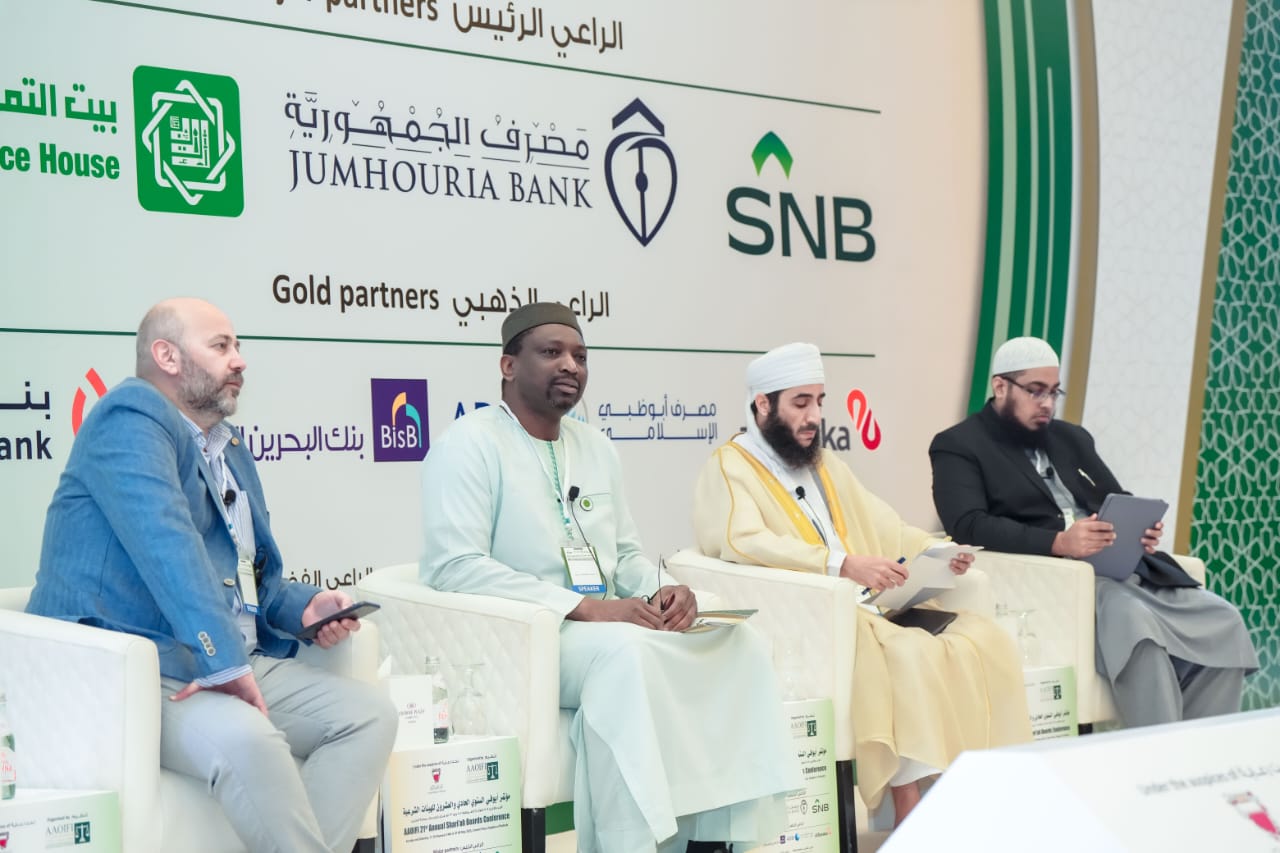
At the kind invitation of the Secretariat General of the Accounting and Auditing Organization for Islamic Banks (AAOIFI) in Bahrain, H.E. Prof. Koutoub Moustapha Sano, Secretary General of the Academy, participated on Monday 18 Shawal 1444, corresponding to 8 May 2023, in a roundtable discussion on “Digital Assets and Islamic Banking”, which was part of the 21st AAOIFI Sharia Council Conference, recently held in Manama, Kingdom of Bahrain.
His Excellency began his speech by defining what is meant by the term “digital assets” which refers to anything that can be stored and transmitted electronically via a computer or any other digital device, and which is linked to ownership or usage rights. In other words, assets, benefits and property rights stored in digital form. This perception applies to paintings, documents and photographs, as well as to what are now known as digital currencies of different types. His Excellency clarified the situation by stating “The Shariah ruling regarding these and other new transactions, whether a permissibility or a prohibition, must be based on the general texts of Shariah, its general maxims and objectives. The general principle is permissiveness, and the principle in transactions is particularly permissiveness, and the Sharia texts contained on transactions are flexible texts that allow for Ijtihad and Tajdid in every time and place.
The concept of “wealth/maal” in Islam applies to goods, benefits and rights, and it also applies to digital goods, as they are not without being representative of goods, benefits or rights, which means that the digitization is now considered to be one of God Almighty’s bounties and facilitations to us in our time, as it has now become one of the most important and effective means we use to preserve money and property, and no one can attack or control it without our permission, and until recently we used to carry our money and coins with us, then our paper money, and now, thank God, we don’t need to carry that money which has become stored in codes and forms in computers and wristwatches. This is why we should no longer talk about the legitimacy of these modern means, but rather about how to take advantage of them and enable them to achieve legitimate objectives in the field of transactions, by subjecting them to Sharia rulings and controls”. His Excellency went on to talk about the types of digital assets, explaining that they are divided into two types, namely, “Digital assets that represent real assets transformed into digital codes and forms, such as logos, paintings and other assets that are actually rights held by their owners, and rights are a type of money, and all other types of money apply to them.” The rulings on wealth in Islamic jurisprudence, and as for the second type of digital assets, these are digital currencies, particularly cryptocurrencies, which are the subject of continuous debate on their Sharia ruling in terms of permissiveness or prohibition.”
His Excellency pointed out that there are three types of crypto-currency: “Firstly, cryptocurrencies that are backed by local paper currencies such as the dollar, euro, dinar and riyal, and there is no dispute that their rulings is the same rulings as of the currencies they represent, and secondly, cryptocurrencies backed by precious commodities or metals, and there is also no legal divergence in the ruling of this first type; As for the third type, these are decentralized cryptocurrencies which are not subject to the jurisdiction of any government or state, and have today become a new means of exchanging benefits and a mediator for transactions.” His Excellency explained that the position of Sharia ruling in this type of case requires the need to differentiate between currencies and their areas of use and circulation, and the fact that it is not subject to the jurisdiction of the ruler or official authorities does not mean that it is not subject to the will of a ruler, because the ruler has the right to set conditions and controls for its use or movement within the borders of his country, and each individual must comply with these rules, controls and conditions.
The dialogue was moderated by H.E. Mr. Shaher Abbas, Founder of IFN and it was well received by the attendees who had a chance to interact with H.E. Sheikh Dr. Kahlan Al Kharusi, Assistant to the Grand Mufti of Oman, and H.E. Dr. Yusuf Sultan, Executive Director of Adli Corporation, who also participated in the conference.
Read Also
Lastest








